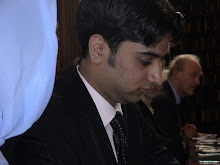April 4 is a tragic day for justice in Pakistan when a popular former Prime Minister was executed by a dictator, who used the judicial machinery to achieve this objective. A lot has been said about why Zia ul Haq deemed it necessary to eliminate his self-proclaimed ‘mohsin’, who had appointed him Chief of Army Staff in order to control bonapartism in the army, yet failed miserably and was made its victim.
Zulfiqar Ali Bhutto was wise enough to predict after assuming power from a military usurper that dictatorship had not been buried for good. He was little aware however that his hand-picked General would betray him and the betrayal would cost him nothing short of his own life as well as incarceration of his family in an undignified and humiliating manner. He was denied his last rituals and his family was not even allowed to see his face before burial, which is contrary to all rules of morality and ethical norms.
Whether it was the personal fear General Zia ul Haq had of Zulfiqar Ali Bhutto which lead him to adopt such an inhumane treatment to his ‘mohsin’ or the carrying out of the will of a super power which wanted to punish Zulfiqar Ali Bhutto for continuing Pakistan’s nuclear program, or a combination of both these factors, cannot be said for certain. But one thing is clear. After his hanging, Zulfiqar Ali Bhutto emerged as a hero and after his plane crash, Pakistanis were relieved and astonished that they had got rid of a hideous ruler, who used religion as a tool to engineer his personal ambitions and to marginalize the party of Zulfiqar Ali Bhutto, who even after his death was the only thing that haunted him before the Soviets entered Afghanistan.
It is easy to identify the defects in the prosecution of Zulfiqar Ali Bhutto, be that the composition of the judiciary that heard his case or the use of fabricated evidence in corroboration with witnesses who were under pressure to give such evidence. Maulvi Mushtaq remains the second biggest culprit after Justice Munir who has supported the case for Pakistan being a place where it is impossible for the judiciary to give a verdict which is independent and not influenced or tainted by external influence, pressure or inducements. To this day, we continue to suffer from the same defects in the judiciary, which has been interfered at will, predominantly by military regimes, which need to legitimize their illegality or face a trial for high treason and abrogation of the constitution of the personnel responsible for such coup. It was seen how very recently members of the judiciary refused to become party to the personal desire of Musharraf to be elected illegally in uniform as well as his wish to continue to oust Nawaz Sharif-the chief threat to his allies—the PML(Q)’s Chaudhries. However, once more we saw the utter contempt Musharraf had for such a judiciary which refused to tame itself to his desires, as he is so often used to.
Until all of us, especially the political parties pledge today that we would not allow the judiciary to be manipulated in a manner that has been seen in the past, we would continue to see miscarriages of justice. We have suffered a lot already to risk another setback in future. It is true that only when principles of justice, equality before law and the importance of an independent judiciary is realized by all political forces, can we truly avoid the repetitions of the past, be that execution of a former Prime Minister or providing legitimacy to the doctrine of necessity which justifies illegal coups and military take overs and brings us back to square one.

No comments:
Post a Comment